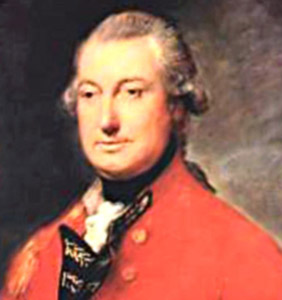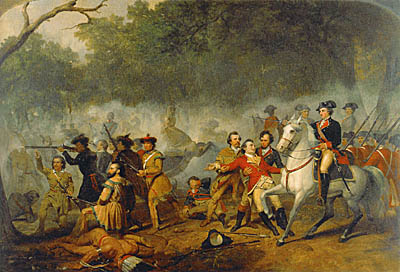The Treaty of Paris officially ended the revolution, and recognized the United States of America as an independent nation.
| When the British heard of the surrender at Yorktown, the House of Commons was in an uproar. They now were concerned of losing the war. The British prime minister North resigned and was replace by Lord Shelborne. Lord Shelborne wanted to negotiate an end to the war. He sent Richard Oswald to Paris to meet with the American representatives Benjamin Franklin, John Adams and John Jay. The Treaty of Paris was signed on September 3, 1782. The treaty was ratified on April 17, 1783, and it officially recognized American independence. |
Under the terms of the treaty, Britain recognized the independent nation of the United States of America. Britain agreed to remove all of its troops from America. The treaty also set new borders for the United States including all land from the Great Lakes on the north to Florida on the south, and from the Atlantic Ocean to the Mississippi River.
The United States agreed to allow British troops still in America to leave. America agreed to pay all existing debts owed to Britain. They also agreed not to persecute loyalists still in America, and allow those that left America to return.










 Charles Cornwallis was born in London and studied at Eton and Cambridge. His first military experience came in the
Charles Cornwallis was born in London and studied at Eton and Cambridge. His first military experience came in the 


















